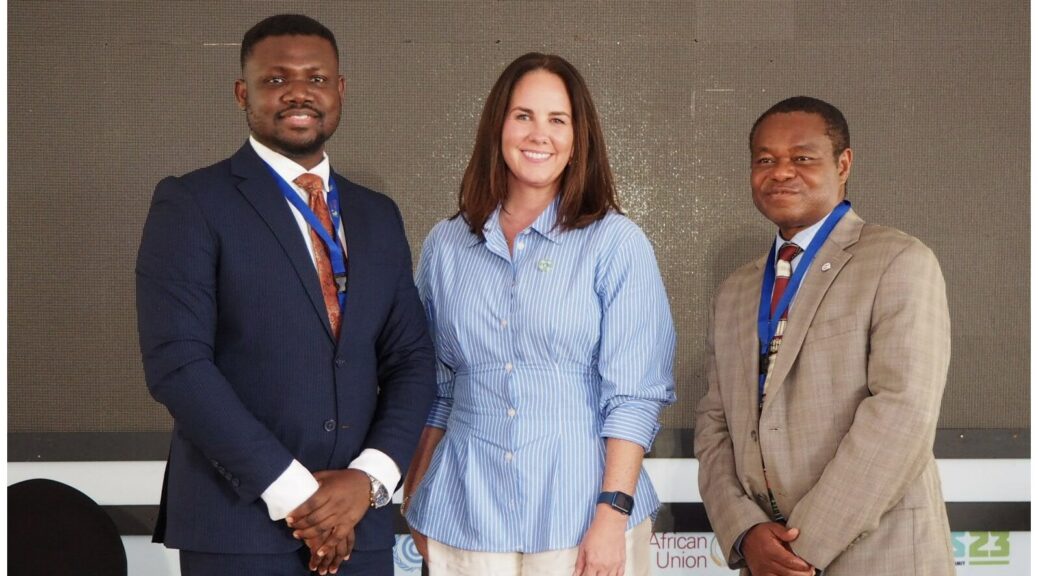The African Conservation & Clean Cooking Collective will work to promote a more comprehensive and coordinated approach to conservation, restoration, and clean cooking in Africa, by raising awareness and building capacity of conservation organizations to incorporate clean cooking into their programs, fostering innovation, facilitating knowledge sharing, and mobilizing finance for landscape-scale clean cooking interventions.
“AWF commits to continued engagements with the Clean Cooking Alliance as we collectively acknowledge that the just energy transition and restoration are key priorities for Africa,” said Frederick Kwame Kumah, Vice President Global Leadership at the Africa Wildlife Foundation. “Restoration and clean energy transition must go hand in hand to achieve our collective climate adaptation goals. Clean energy must be made accessible with a just transition approach that fits within the African context. Working together will deliver deliberate investments that focus both on the industrial level and household level looking at localization of practical energy solutions that contribute to sustainable development.”
Extending access to clean cooking for communities living near critical landscapes is vital for protecting forest ecosystems and promoting sustainable agroforestry, wildlife conservation, and sustainable livelihoods. Efficient cookstoves can cut fuel use by 30–60%, significantly reducing carbon emissions and pressure on forests, while improving health and resilience.
“We recognize that sustainable change requires strategic investment,” said Olufunso Somorin, Regional Principal Officer, Climate Change and Green Growth Program, African Development Bank. “This partnership is not only catalyzing clean cooking solutions but also driving vital resources into conservation and development programs that will shape a more resilient and prosperous Africa for generations to come.”
This transformative initiative will harness the expertise, networks, and capabilities of each partner to support landscape-scale clean cooking transitions across the continent. Recognizing the importance of African-led solutions, each organization brings unique local knowledge, capabilities and resources to the table, enabling the Collective to effect change at scale, across multiple communities, landscapes, and countries. This marks a historic milestone in the clean cooking and conservation sectors, towards holistically addressing one of the core drivers of nature loss and building resilience for communities across Africa’s most critical landscapes.
“Africa cannot achieve its climate, economic, and sustainable development goals without accelerating a rapid shift to clean cooking solutions, but this requires a paradigm shift: mainstreaming clean cooking into broader efforts,” said Dymphna van der Lans, Chief Executive Officer of the Clean Cooking Alliance. “The commitment of these Collective partners represents a hopeful transition away from siloed approaches, to actively mainstreaming clean cooking into the largest conservation and restoration movements on the continent.”
For more information on the integral role that clean cooking plays in protecting and restoring nature, read CCA’s report Accelerating Clean Cooking as a Nature-based Climate Solution.
About CCA:
The Clean Cooking Alliance (CCA) works with a global network of partners to build an inclusive industry that makes clean cooking accessible to the 2.3 billion people who live each day without it. Established in 2010, CCA is driving consumer demand, mobilizing investment to build a pipeline of scalable businesses, and fostering an enabling environment that allows the sector to thrive. Clean cooking transforms lives by improving health, protecting the climate and the environment, empowering women, and helping families save time and money.
About AWF:
The African Wildlife Foundation (AWF) is the leading international conservation organization focused exclusively on Africa’s wildlife and wild lands. AWF’s programs and conservation strategies are designed to protect the wildlife and wild lands of Africa and ensure a more sustainable future for Africa’s people. Access to clean cooking is a significant challenge in all many of AWF’s landscapes. Increasing demand for firewood and charcoal, from both rural and urban areas, is driving substantial habitat and species loss and negatively impacting communities who are the main constituency for conservation.
About AfDB:
The African Development Bank (AfDB) is a multilateral development bank established in 1964 to mobilize resources for the economic and social development of its African member countries. The AfDB strives to reduce poverty and improve living conditions on the continent through promoting sustainable economic growth and social development. The AfDB has been a champion for clean cooking on the continent, funding numerous clean cooking projects – establishing mechanisms like the Sustainable Energy Fund for Africa (SEFA), and most recently as an anchor investor in the world’s first impact fund investing in clean cooking solutions – Spark+ Africa.
Media Contact
Kip Patrick, Clean Cooking Alliance, 2028879040, [email protected], https://cleancooking.org
SOURCE Clean Cooking Alliance


